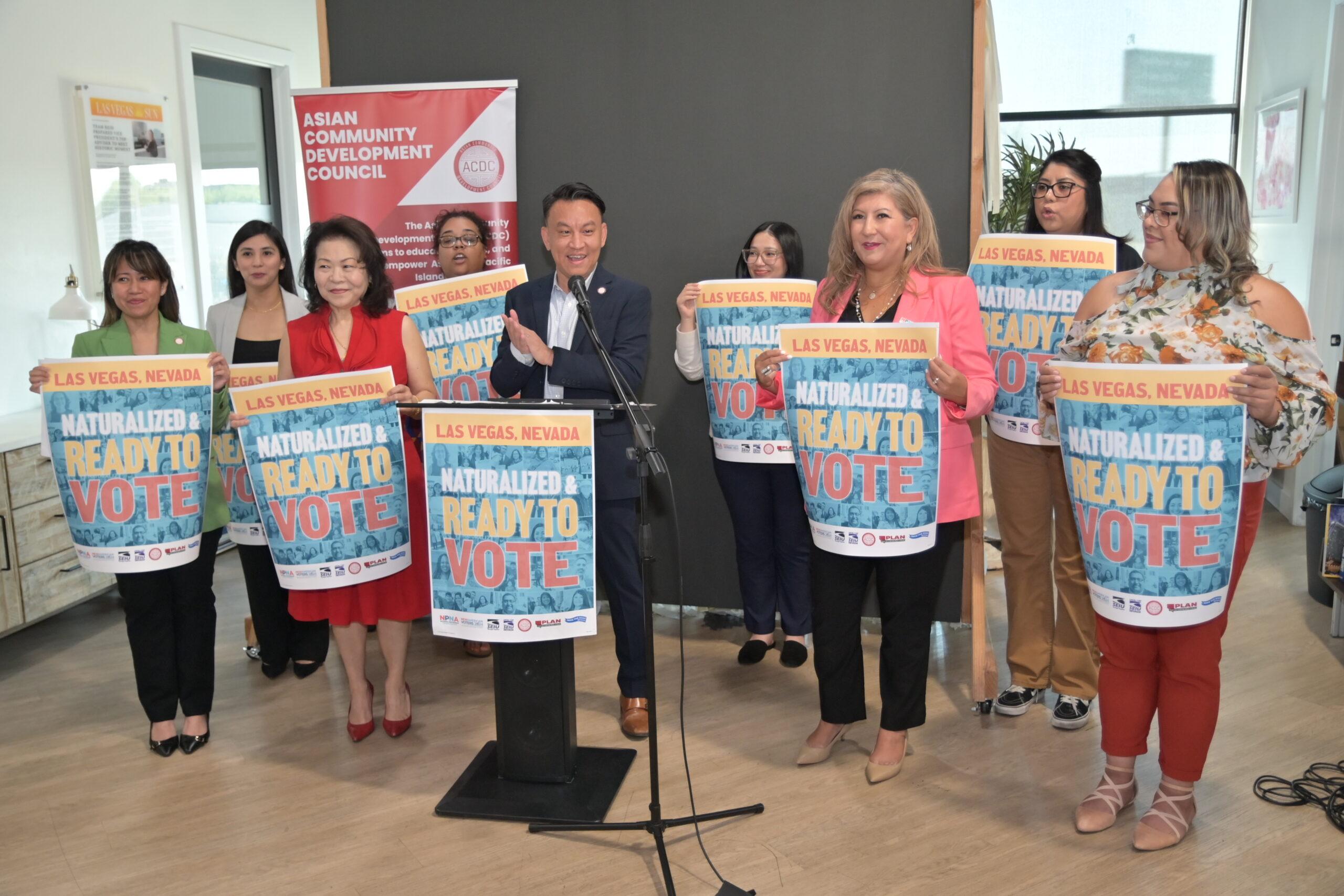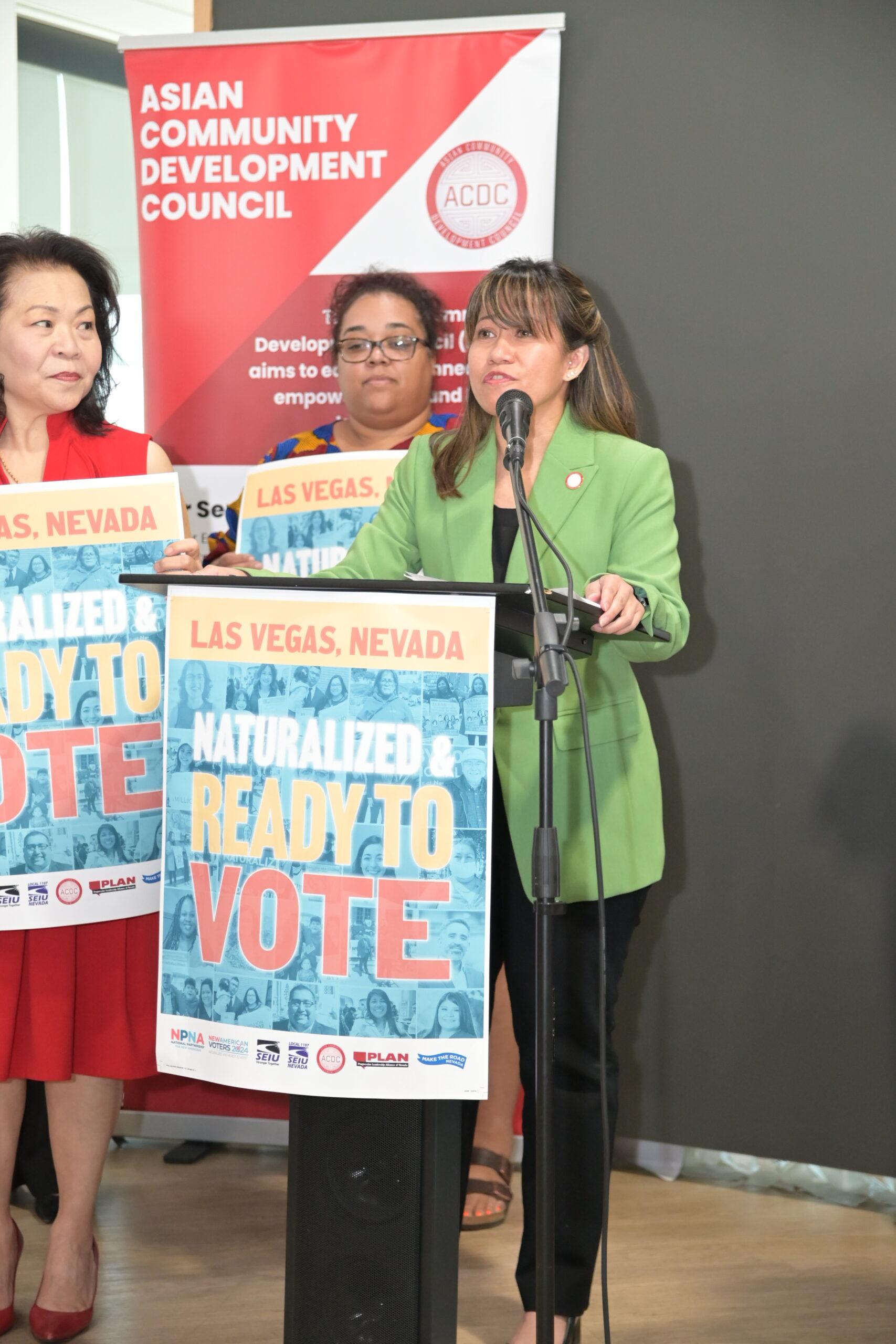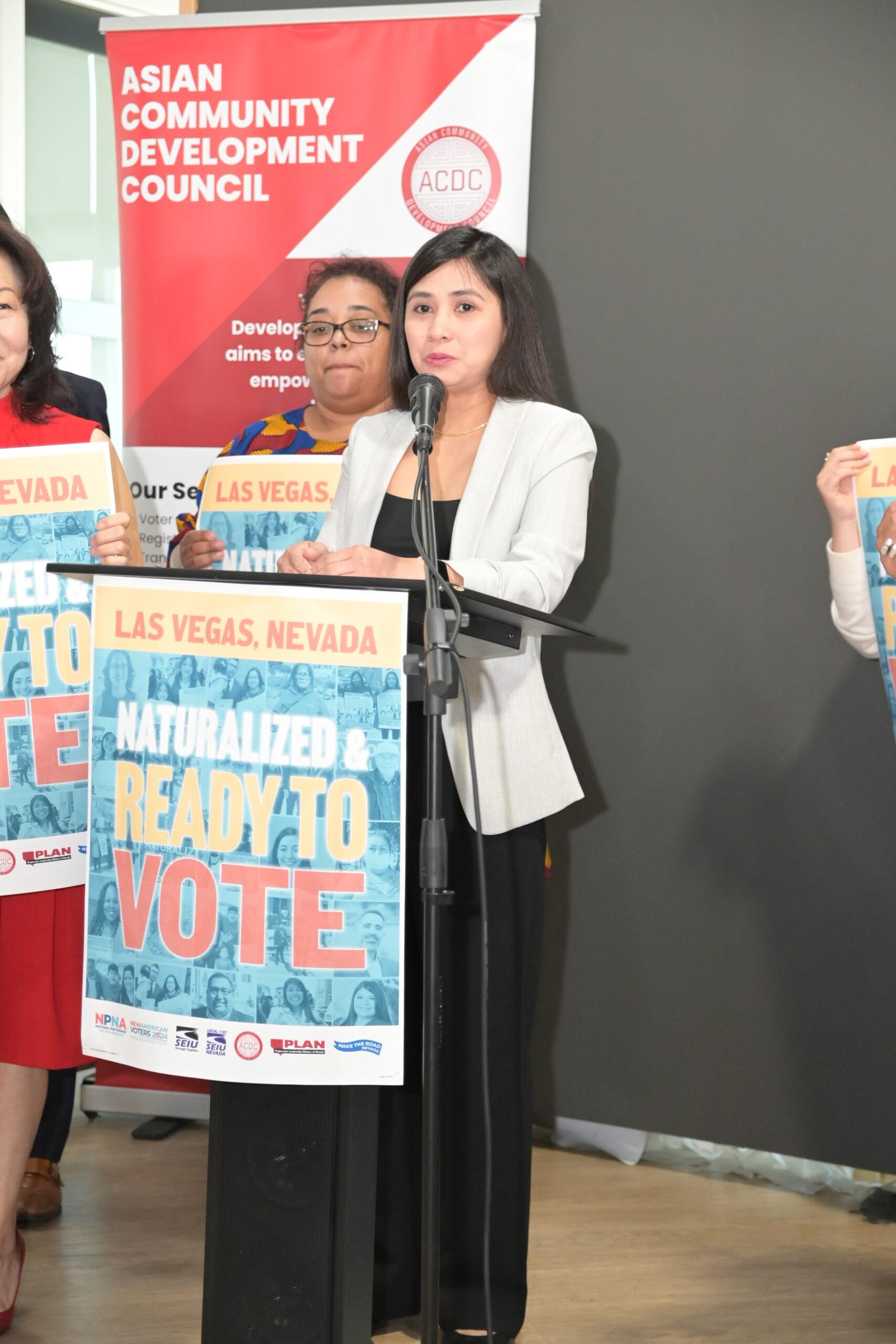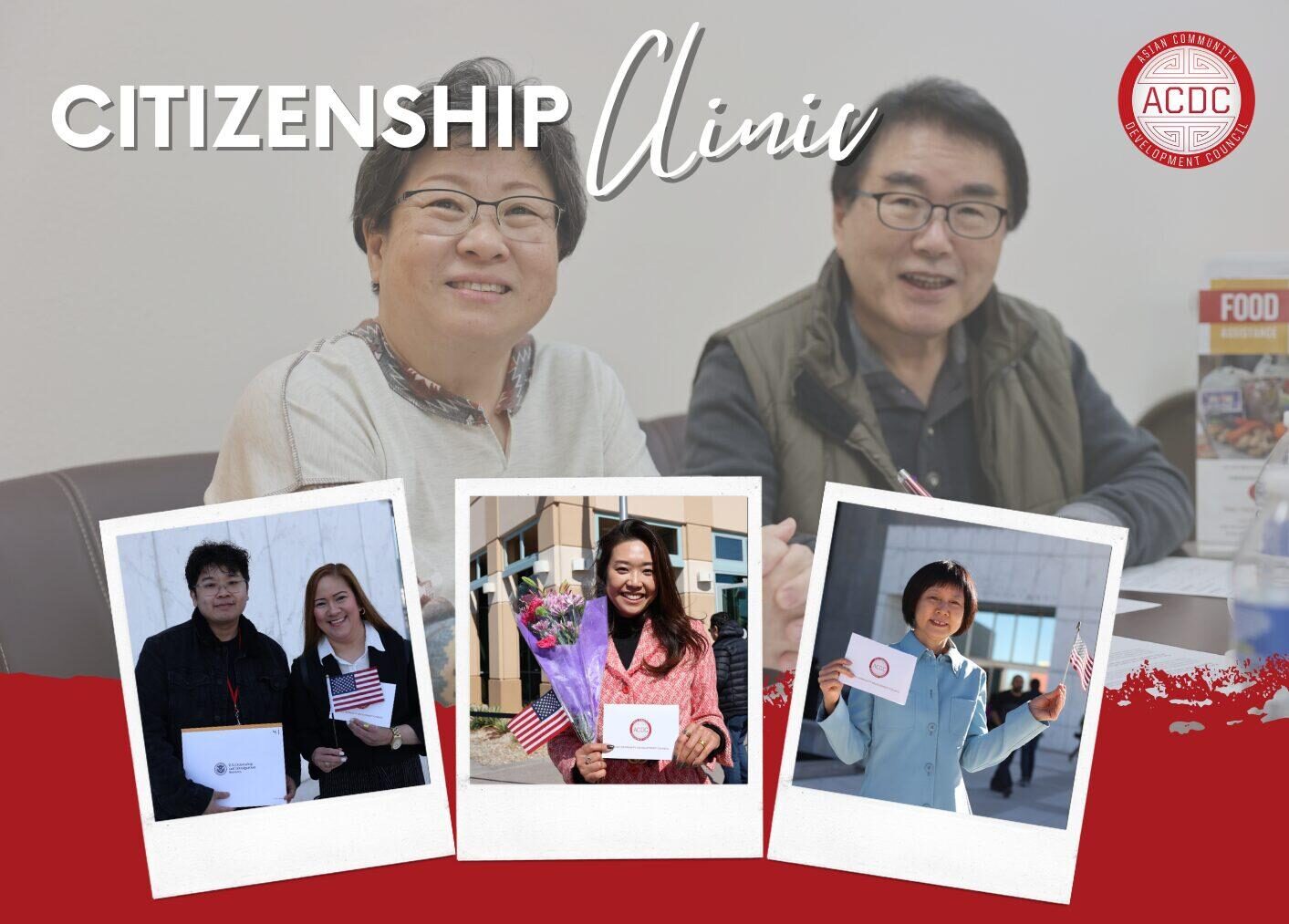The “Naturalized and Ready to Vote!” tour hits key swing state Nevada, which has more than 41,000 newly naturalized voters since 2020
LAS VEGAS, N.V.—With less than two months before the 2024 general election, national immigration advocates are alerting candidates and political parties of a growing and enthusiastic electorate: naturalized citizens.

On Monday, Sept. 9, the “Naturalized and Ready to Vote!” tour hit Las Vegas to share new survey findings about the expanding community of naturalized voters, dubbed New American Voters.
The survey was released by the National Partnership for New Americans (NPNA) and conducted and analyzed by the University of California San Diego’s U.S. Immigration Policy Center. It is part of a series of research studies designed to understand voting behaviors and attitudes of naturalized voters.
Nicole Melaku, executive director of NPNA, shared the results at the tour stop held at a co-working space in the Spring Valley area of Las Vegas. As of Sept. 9, about 3.5 million immigrants became citizens, which means that naturalized voters comprise 10% of the entire United States voting public.
“[Immigrant voters] have the potential to play an outsized role in key states this November,” Melaku said. “What is clear from the polling is that naturalized Americans are paying close attention to this election.”

According to the poll, 76% of survey participants said that they will “definitely vote” and about 22% said that they will “probably vote”—a 98% pledge to cast a ballot in November.
The survey participants included 2,678 naturalized citizens who are registered to vote in the following swing states (plus California): Arizona, Florida, Georgia, Michigan, Nevada, and Texas.
The survey also found that 87% of its participants said they voted in 2020, a year which saw the highest voter turnout since 1900, according to Pew Research Center.
“With just 56 days remaining before the election, we encourage all who are eligible for citizenship to naturalize, and all who are newly-naturalized to register to vote—not only to strengthen our democracy, but to ensure our communities’ voices and priorities are heard at the polls,” Melaku said.
Since 2020, the Silver State alone saw a 41,368 increase in naturalized Nevadans, and more than a quarter of those new Americans are from Asian countries.
According to citizenship data, 8,193 immigrants came from the Philippines, which had the largest share of new Nevadans from Asia and the second largest share overall.
“When we activate our communities, these numbers have a true impact during the presidential election,” said Vida Lin, founder of the Asian Community Development Center (ACDC), an Asian American advocacy group that provides immigration assistance.
Lin added that in 2020, President Joe Biden won the election by 33,500 votes, highlighting the impact that naturalized voters can have in electoral contests.

ACDC’s Director of Family Services Edelweiss Solano, who was recently naturalized, first moved to the U.S. from the Philippines in 2013.
“It was a sacrifice that I had to make, to leave everything that was familiar, but I was also greeted with a promise and opportunity,” she said at Monday’s event.
Through her work with ACDC and collaborating with other immigrant advocacy groups, she realized the civic duty of voting.
“When we vote, we have the opportunity to change and advocate for better policies on immigration, language access, health care, and education to further advance equity, inclusion and diversity,” said Solano.
In 2023, she was eligible to apply for citizenship, and on Jan. 5 of this year, she became a U.S. citizen.
“Being an American citizen is so much more than clutching that small U.S. flag that I waved during my naturalization ceremony,” Solano said. “It is about serving a bigger purpose, to have my voice finally be heard, to express my opinion on the candidate that I will vote for, who reflects my values and represents the interests of my community, to help build a democracy that represents, protects and works for people like me– who look like me, who look like us.”






